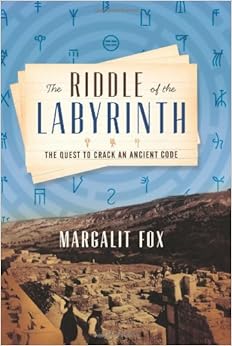


This, together with his discovery that there was an inflection for the masculine and feminine forms - a characteristic of Indo-European languages - convinced him he had found an early Greek dialect, and therefore had to dismiss his Etruscan theory as the Etruscan language was not Indo-European. The Cypriot script was a millenium younger but a bilingual inscription in Cypriot and Phoenician had been found which allowed Ventris to assign sounds to the characters. This was another syllabary and shared a few symbols with Linear B. He then turned to the Cypriot script of Cyprus. Ventris's breakthrough came when he realised that some of the characters found uniquely at Knossos were probably the names of Cretan towns. Importantly, he also had greater access to another source of Linear B: another cache had been found by an American archeologist on the mainland at Pylos. This meant he was happy to extend Kober's grids, rearrange them and assign sounds to the characters based on Etruscan which he was convinced was the solution. His was a more intuitive approach, and he was more tolerant of inaccuracies.

Michael Ventris was an equally interesting character: less methodical than Kober and more quixotic with an incredible gift for languages.


 0 kommentar(er)
0 kommentar(er)
